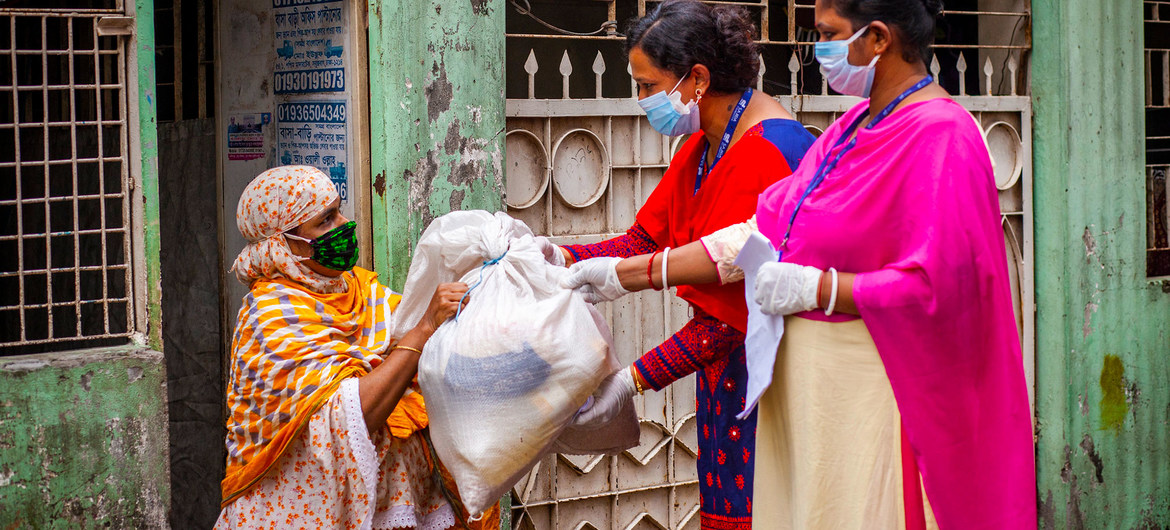
Harness multilateralism’s power to urgently advance women’s rights amid COVID recovery
With essential resources for women’s health being diverted to emergency COVID-19 response around the world, Governments, civil society leaders, CEOs and academic experts gathered virtually on Tuesday, to explore ways to accelerate the achievement of landmark targets set 25 years ago for gender equality and women’s empowerment.
“It’s up to us to make sure that we use the power of multilateral investment and commitment to realize the potential gains from radical, positive action to redress long-standing inequalities in multiple areas of women’s lives,” said UN Women Executive Director Phumzile Mlambo Ngcuka, during the day-long interactive hearing organized by General Assembly President Tijani Muhammad-Bande.
The virtual event rallied participants around the need for stronger multilateral commitment to implement the 1995 Beijing Platform for Action. Adopted at the watershed Fourth World Conference on Women in Beijing, it outlines 12 critical areas where action is needed to create gender equality - and ways to bring about change. Together with the Beijing Declaration, it is widely considered the most progressive blueprint for advancing women's rights.
The interactive hearing more broadly sets the stage for a high-level meeting to be held by the Assembly on “Accelerating the realization of gender equality and the empowerment of women and girls”, on 23 September, during its annual general debate.
COVID-19 lays bare gender inequalities
Ms. Mlambo Ngcuka urged Governments - and all other service providers - to plan their COVID-19 response “as they have never done before”, including women in its design and fully taking a gender perspective into account.
COVID-19 has laid bare existing inequalities, she stressed. Across every sphere - from health to the economy, security to social protection - women and girls are disproportionately affected.
Ms. Mlambo Ngcuka – who devoted particular attention to empowering women as Deputy President of South Africa from 2005 to 2008 - said women today, aged 25 to 34, are 25 per cent more likely than men to live in poverty. While women’s political representation has doubled since 1995, men still control more than three quarters of the seats in the single and lower houses of parliaments around the world.
And after years of progress, she said the proportion of peace agreements that included references to women, dropped from 32 per cent between 2011 and 2015 to 7.7 per cent in 2018.
Gender equality ‘everyone’s responsibility’
“We simply cannot allow the coronavirus to threaten the lives and future of women,” said Mr. Muhammad-Bande. Twenty-five years after adopting the Platform for Action, efforts to stop the spread of COVID-19 have shut schools, diverted resources to pandemic response, and disproportionately affected women with a significant uptick in unpaid care work.
“Gender equality is everybody’s responsibility,” he said. The conversation must move beyond a virtual platform, “to amplify the voice of every girl and facilitate women’s leadership in all arenas”.The needs of women and girls must be central to both rapid-response and long-term recovery planning, he asserted, with women included in every decision-making forum.
Support Our Journalism
We cannot do without you.. your contribution supports unbiased journalism
IBNS is not driven by any ism- not wokeism, not racism, not skewed secularism, not hyper right-wing or left liberal ideals, nor by any hardline religious beliefs or hyper nationalism. We want to serve you good old objective news, as they are. We do not judge or preach. We let people decide for themselves. We only try to present factual and well-sourced news.







